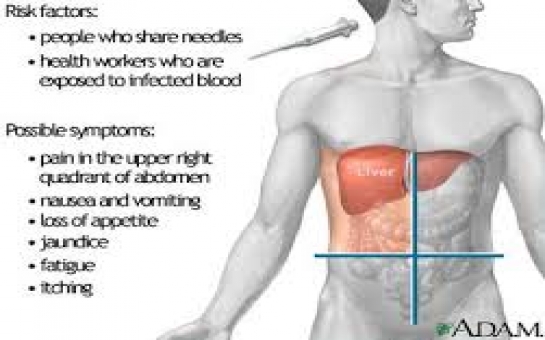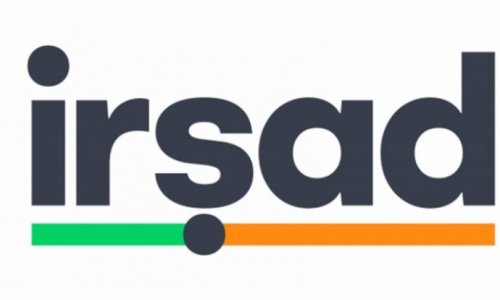A new medication for chronic hepatitis C that can be paired with other drugs to make treatment of the liver-damaging disease faster, easier and more effective got approval from the Food and Drug Administration Friday.The new medication, called sofosbuvir and made by Gilead Sciences Inc., is part of a "revolution in treatment," says Douglas Dieterich, a specialist in liver disease at Mt. Sinai Hospital, New York. Dieterich is a consultant to Gilead and other drug companies."The upshot is that over the next year to the next 18 months there will be a series of medications approved that will vastly simplify the treatment of hepatitis C for nearly everyone and increase the cure rate beyond 90%," says David Thomas, a liver specialist at Johns Hopkins Medical Institutions, Baltimore. Thomas says he has no current financial ties to drug makers.More than 3 million people in the USA are infected with the hepatitis C virus, the nation's leading cause of liver cancer and liver transplants. Most have no symptoms until their livers start to fail, causing jaundice, fatigue and other problems. Up until now, standard three-drug treatments have taken 24 to 48 weeks and required self-injections of interferon, an immune therapy that can cause difficult-to-tolerate flu-like symptoms and mood swings.Sofosbuvir, which has the brand name Sovaldi, will be the first treatment that some patients will be able to take for just 12 weeks with just one additional drug and no interferon. The FDA approved the no-interferon combination for patients with two strains of the virus, known as genotypes 2 and 3. For most patients with a more common strain, genotype 1, sofosbuvir is approved to be taken with interferon and an older drug called ribavirin. Some patients still will have to be treated for 24 weeks.None of the regimens are 100% effective. But in one study, 89% of genotype 1 patients who took the three-drug version were cured in 12 weeks, compared with 75% cured in longer-lasting available regimens, says Ira Jacobson, a liver specialist at Weill Cornell Medical College, New York, who has led drug studies for Gilead.Sofosbuvir does not add any obvious side effects to those already associated with the drugs it is paired with, he says. So patients taking it with ribavirin may experience fatigue and insomnia and those who also take interferon will have additional side effects, but for a shorter time than in the past, he saysThe wholesale cost for a one-month supply of Solvadi will be $28,000, Gilead said in a press release.Therapies will continue to evolve. For example, some doctors may decide, based on recent studies, to treat some type 1 patients with an interferon-free cocktail of sofosbuvir and another antiviral medication called simeprevir, Dieterich says. FDA approved simeprevir, made by Janssen Therapeutics, in late November, but has not approved the two drugs in combination. Such "off-label" use is legal, but it's not clear insurers will pay for it, Thomas says.Doctors also may put off treating some patients with milder illnesses until additional combinations, including one-pill versions, are approved. That's the "holy grail" of treatment, Jacobson says.Two medical groups, the American Association for the Study of Liver Disease and the Infectious Diseases Society of America, will publish new online treatment guidelines in January to help doctors make decisions in the rapidly evolving field, Thomas says. He is co-chairing the guideline committee.Hepatitis C is one of several viruses that can cause liver damage. Vaccines can prevent hepatitis A and B but not C. The virus infects about 16,000 people a year and 75% to 80% develop chronic infections, according to federal Centers for Disease Control and Prevention. Most then develop chronic liver disease and up to 5% die of cancer or cirrhosis.The virus spreads through blood, most often through shared drug needles, accidental needle sticks and birth. But transmission through sex and through unsanitary tattooing and piercing is possible, CDC says. Because the infection is most common in Baby Boomers, CDC recommends that everyone born between 1945 and 1965 be tested for itThe availability of safe, effective treatment makes it more urgent for people to get tested, Thomas says. Many picked up the virus through youthful drug use, medical mishaps or sex many decades ago and half of those who are infected don't know it, he says. "We want to find the people who have it so we can give them the treatments and help them."
More are likely to choose and stick with quicker, easier therapies, Dieterich says. "One of my patients told me that taking interferon was like 48 weeks of having PMS with a cold," he says. Dieterich says he once had hepatitis C, caused by a needle-stick, and suffered through many months of interferon treatment for it in the late 1990s. It worked, he says, but "it was bad."
ANN.Az











